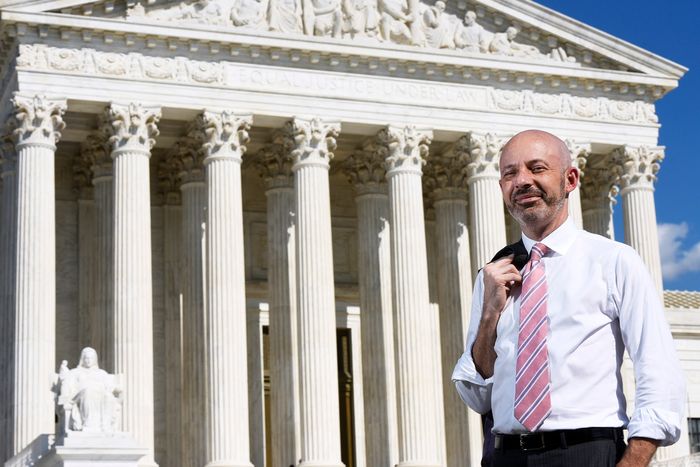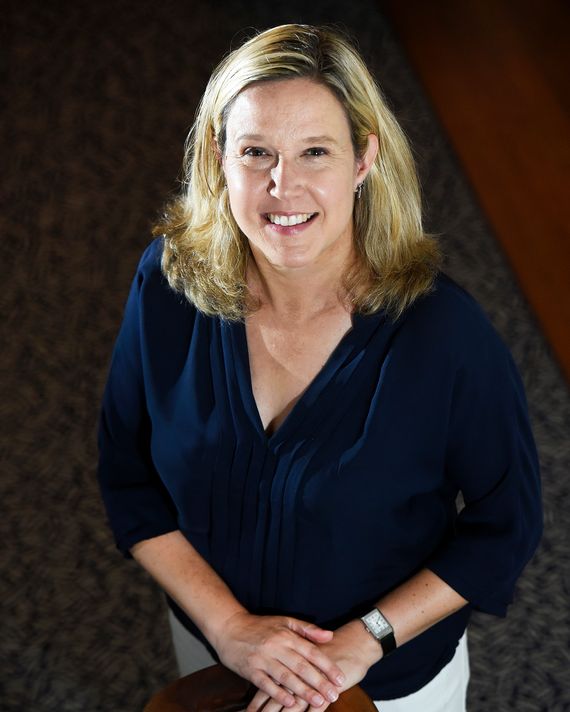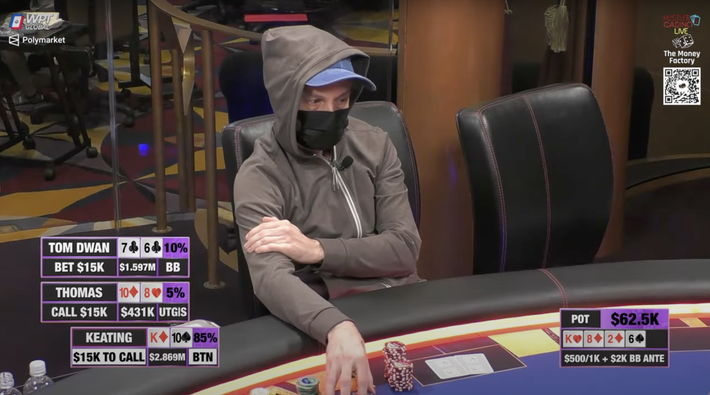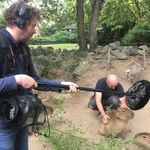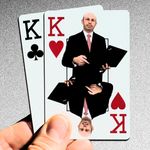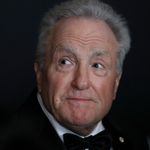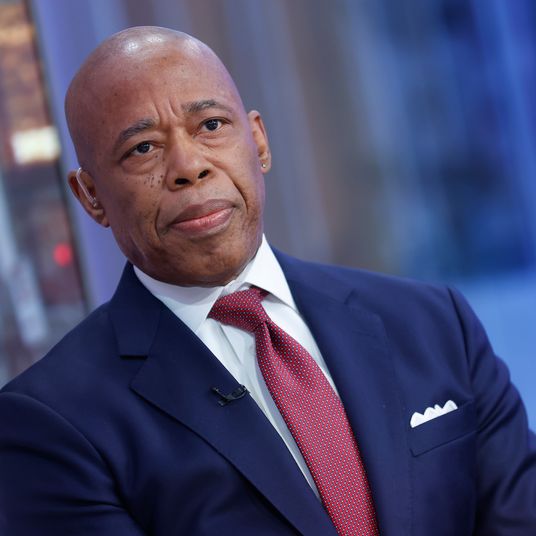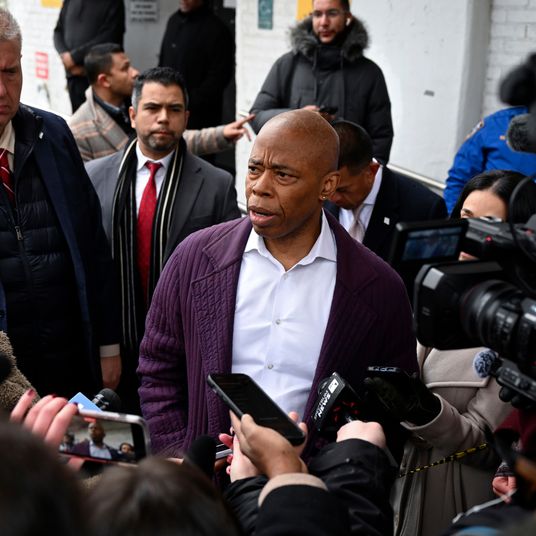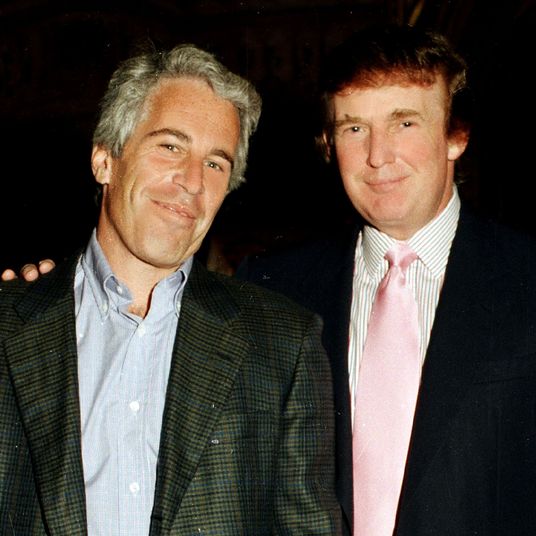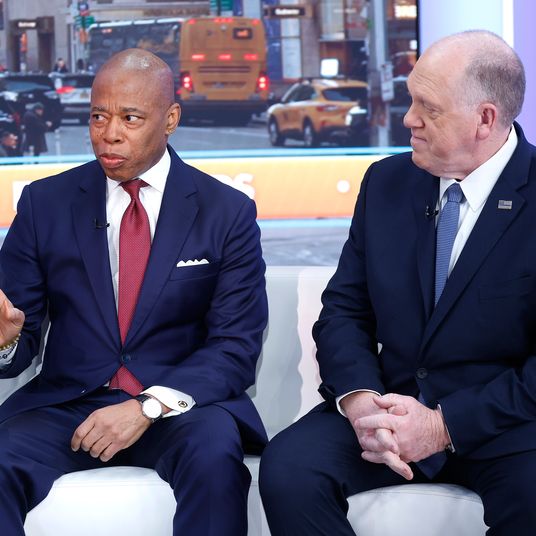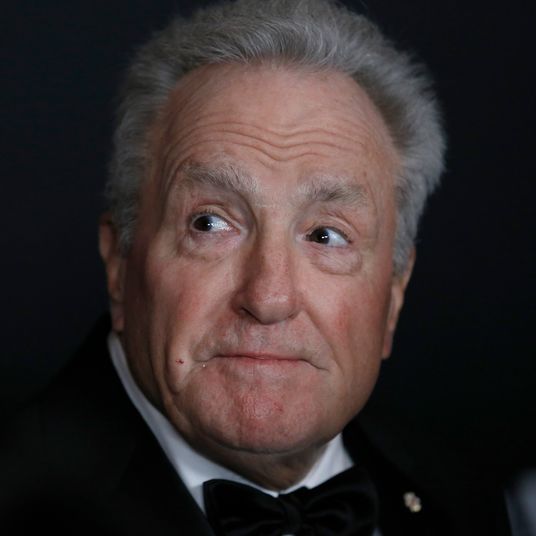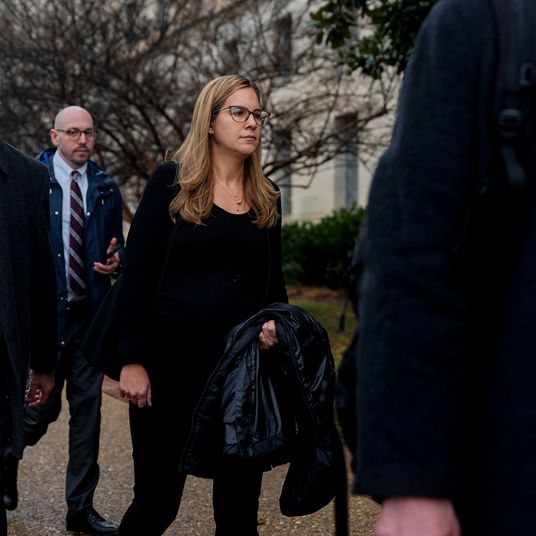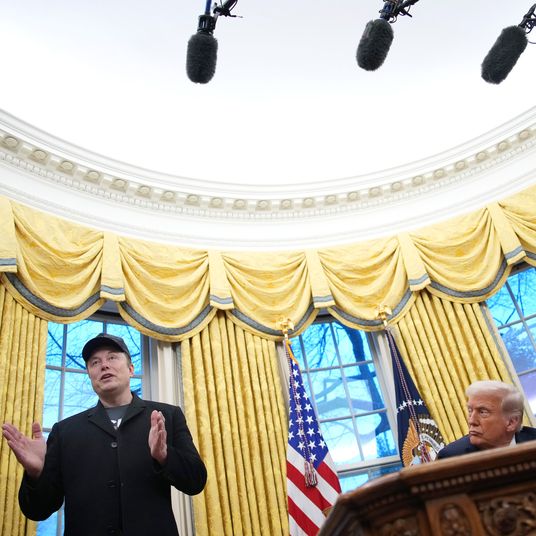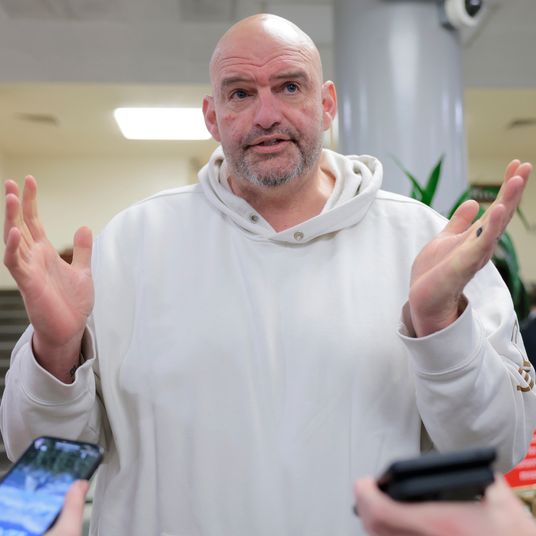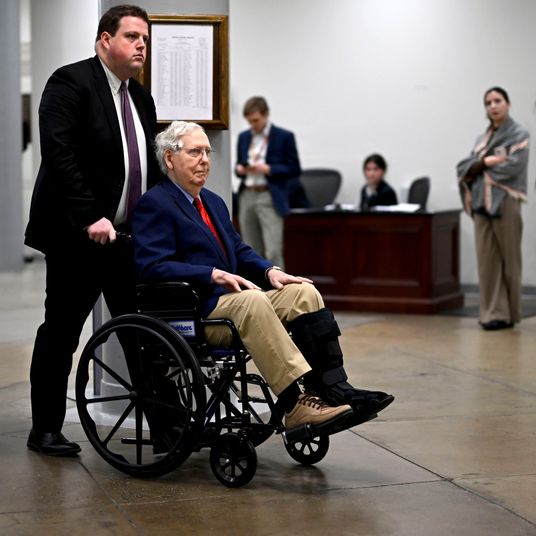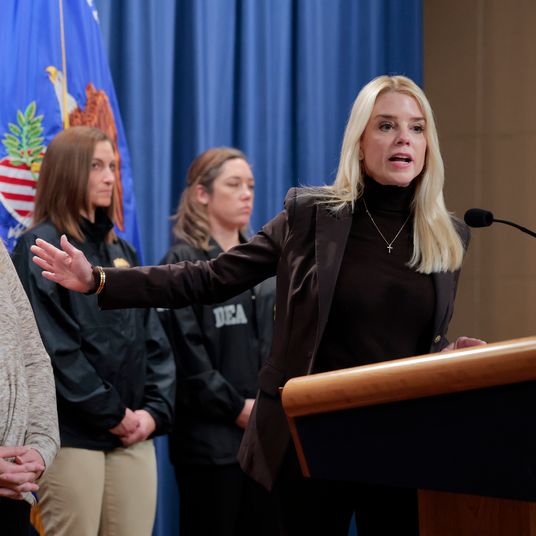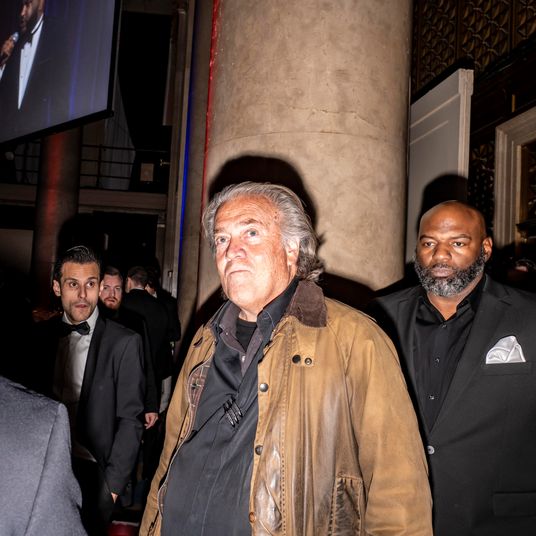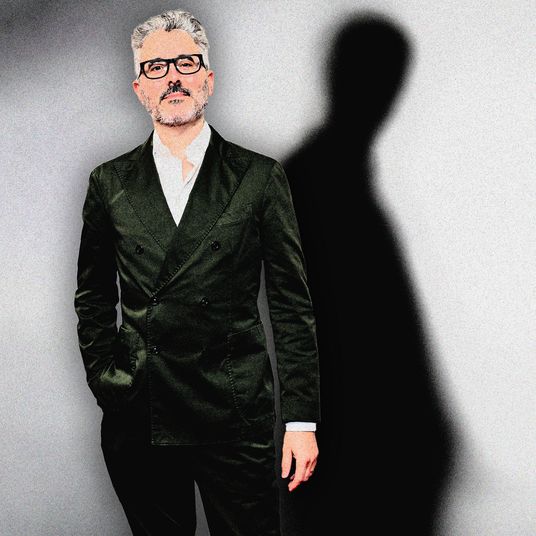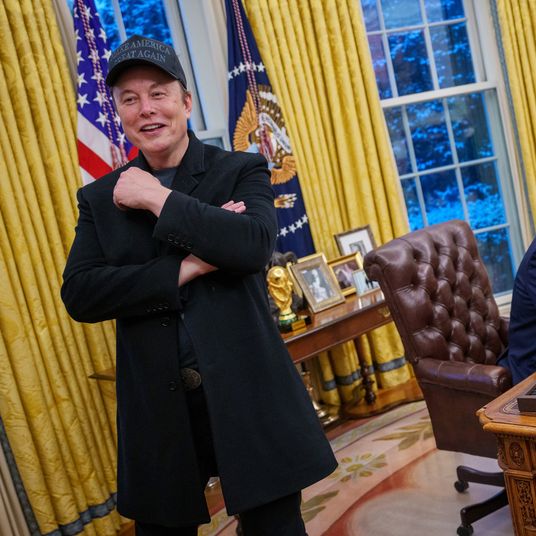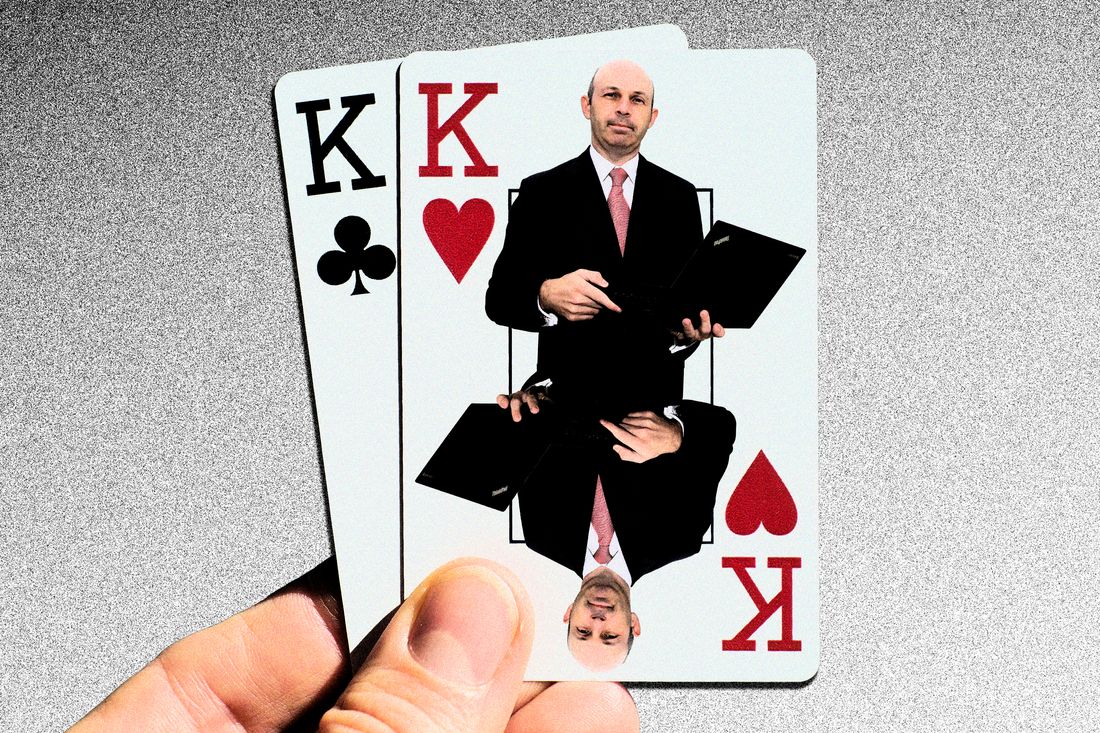
This article was featured in One Great Story, New York’s reading recommendation newsletter. Sign up here to get it nightly.
There are few attorneys alive today who have influenced the Supreme Court as much as Tom Goldstein. He has argued 45 cases before the Court, single-handedly changing how lawyers get cases in front of the nine justices, and taught a generation of Harvard and Stanford law students how to do the same. The website he founded, SCOTUSblog, pioneered coverage of the Court and became the go-to destination to learn about the most consequential rulings of the century. On Monday, an hour north of the high court, he was booked into a maximum-security jail next to the freeway.
His fall was as abrupt as it was shocking to the legal heavyweights he counts as friends. Publicly, he was a wealthy, well-liked, married father of two, an award-winning attorney widely cited as an authority on the high court. Privately, according to a 22-count indictment revealed last month, Goldstein, 54, was living as an international high-stakes poker player who evaded millions in taxes and used his law firm as a slush fund to pay gambling debts and support multiple girlfriends. Colleagues always knew he liked poker, playing with quarters for chips as a lecturer on the Harvard Law campus. But none seemed to know the extent to which he was hooked. The Feds, however, claim he borrowed millions from former clients and fellow gamblers to play in exclusive matches from Macau to Las Vegas, getting close to an alleged member of the Hong Kong underworld along the way. Although he usually played for cash, crypto, or casino chips, he allegedly once funded a poker game with a kilo of gold. “A lot of us who knew him were surprised,” says one former colleague. “We knew he was a big gambler. But nobody knew he was basically living a second life.”
Goldstein has pleaded not guilty, hired the top crisis-PR firm to fight for his reputation, and retained two former lawyers of Donald Trump’s to defend him in court. His team is already showing its worth, prevailing over prosecutors in a dispute over a crypto transaction post-indictment that landed him behind bars.
“At the moment, Tom is the Pete Rose of the Supreme Court bar,” says a longtime friend, referring to the baseball phenom who died in exile from the sport because he bet on his own games. “It would take enormous work to claw himself back into what he once considered the right kind of life.”
The way Goldstein tells it, he just barely made it as a lawyer at all. He had mediocre grades at the University of North Carolina, putting more effort into the debate team than his political-science classes. “He’s caring and looks after the people in his orbit and is funny and charming and all of those things,” his debate coach told an alumni magazine. But when it was time to compete, a different side came out: “You could watch him all day but never actually see the knife in his hand.” He was turned away from all the law programs he applied to except American University’s, where he made it in as a night student because his stepmom’s cousin knew the admissions director.
While at American, Goldstein made the first important cold call of his career, pitching Nina Totenberg, NPR’s legal-affairs reporter, on why he should be her intern. “From somebody who talked too fast and was a little shaky and sort of pissed off the court in the beginning, he became one of those lawyers who could stand there for an hour or two and not be thrown off his mark,” says Totenberg, after whom Goldstein later named his daughter. Attorneys noted a different skill of his. “He took very aggressive positions,” says the colleague, “which had the potential to be very successful or end in ignominious defeat.”
In 1994, he married Amy Howe, his college sweetheart whose notes he relied on to get through undergrad. Friends say Howe — 2-0 in her own brief Supreme Court advocate career — was just as brilliant as her husband but quieter and more grounded. “She was always his ethical guidepost when ambition might peek around,” says Totenberg. Howe used to remind her husband at the beginning of his career that the cases he took on involved real people.
Soon after passing the bar, Goldstein began rising through the ranks of white-shoe law firms in D.C. (Jones Day and Boies Schiller) before going into private practice with Howe, running the firm from their laundry room. His niche was finding “circuit splits,” i.e., two appellate courts ruling in contradiction to each other; these cases have the kind of judicial tension the Supreme Court is looking to resolve. Goldstein figured out that major firms looking for big payouts weren’t targeting circuit splits involving small amounts of money. So he began cold-calling potential clients to win them over — even those who already had lawyers, according to another former colleague.
This method put him on the fast track to the Supreme Court. In 1999, at the age of 28, Goldstein argued his first case there, which was also his first time formally arguing before any judge. He lost the dispute over his client’s $1,500 fine 9-0, but losing did not scare him in the way that it did some other Ivy-pedigreed lawyers. He was making his name as a Supreme Court advocate with bigger fees promised down the line. “The time was right for somebody like Tom to figure out that if the court really wants to decide circuit splits, then we should get involved early in cases and start reaching out to people in lower courts,” explains a third former colleague.
Not everyone was impressed by the aggressive approach from the upstart lawyer from a second-tier law school. “If I’m going to have heart-bypass surgery, I wouldn’t go to the surgeon who calls me up,” John Roberts, then a private attorney, said of Goldstein at the time. But within a few years, it seemed as if everyone in appellate law was emulating his lowball method; he likened the practice to “hitting singles” instead of home runs. “The Supreme Court practice has always been kind of a loss leader,” explains the third former colleague. “It’s a prestige thing. It allows firms to tell their clients, ‘We can represent you from cradle to grave in litigation.’”
“Most of the big firms are out there hunting for the kinds of cases Tom got his break with,” says one attorney Goldstein mentored. “Now if there’s a case that might be worthy of Supreme Court review — even if it’s only a $10,000 case — there’s probably ten big law firms begging to do it.”
A year after Goldstein’s first court appearance, Laurence Tribe hired him for a research position on the Democrats’ all-star legal team for Bush v. Gore. “Tom has an essentially photographic memory,” says Tribe. “He’s very good at dealing with people.” Having barely made it into law school a few years earlier, Goldstein had elbowed his way into the echelon of Supreme Court lawyers, an exclusive world of former clerks; future justices; and Harvard, Stanford, and Yale grads. “I stood for things that they didn’t like,” he told his alumni magazine. “I think they were very comfortable with an elite Supreme Court bar. I didn’t know enough to care.”
Former colleagues say Goldstein was chatty and could read people and how to cater his arguments to each justice on the bench. “He knew the Court’s decisions; he knew the justices’ attitudes,” says David Boies, who argued Bush v. Gore for the Democrats. He went to dinner with the justices and knew enough about them to give personal color to reporters. Clarence Thomas is much more verbose than his court demeanor would suggest; Antonin Scalia was a poker fan.
In 2004, Goldstein began teaching at Harvard Law’s Supreme Court litigation clinic, a program where law students learn the ins and outs of arguing before the justices; Stanford Law trusted him to co-found its program that same year. “A lot of former students went on to clerk at the Court, and he absolutely changed the kinds of cases the Court heard,” the third former colleague says. “He’s had a huge impact on the way the Supreme Court operates.”
Around the same time, Goldstein created SCOTUSblog with his wife to share their knowledge of the Court by providing fast, incisive takes on decisions. He once called the blog a “marketing ploy,” but over time it became indispensable for SCOTUS watchers, including the clerks working for the justices. In 2012, the site was flooded with visitors after Goldstein correctly read the decision upholding Obamacare as constitutional while CNN and Fox News had made the wrong call. “There are lots of lawyers who know the answer but can’t give it to you in English,” says Pete Williams, a friend who retired as NBC’s longtime court watcher. “Tom could always cut through and be very clear in his answers.”
Attention flooded Goldstein, too. Several firms tried to recruit him before he joined the multinational Akin Gump Strauss Hauer & Feld as a partner at 35. SCOTUSblog became a Jeopardy! clue and earned a Peabody Award, the first to be won by a blog. He appeared on The Daily Show, nerdy but confident in a comedic setting. Demanding a four-figures-per-hour fee, he became fond of three-piece suits and luxury watches. The company behind The Walking Dead bought his life rights for a TV show called Tommy Supreme — the character pitched as a “likable guy in the most unlikable profession.”
Like millions of Americans, Goldstein caught the poker bug around the time an amateur who called himself Chris Moneymaker went on a miracle run to win the main event at the 2003 World Series of Poker — a ratings boon that helped launch the popularity of online Texas Hold’em. Goldstein’s own poker career began quietly enough with games at his home outside D.C. with friends, lawyers, and fellow bloggers. One attendee recalled that they were more of a “social gathering” than serious poker.
Goldstein was a natural, dominating a 130-person tournament to win a seat at the World Series of Poker in 2008. He got bounced early but managed a six-figure run in an 18-hour game at the Bellagio while he was in Vegas. It helped that the same skills from the courtroom apply at the card table: reading people, calculating odds, and knowing when to go for the big win. “It has great analytical benefits,” he told Legal Times of the similarities between his profession and his hobby just before the tournament. “You learn a lot about people.”
Within a few years of getting into the game, Goldstein began playing against local high rollers in a long-standing game outside D.C., says one friend who played with him. Favoring a sport coat and pocket square, “Tom looked very meek and mild,” the friend recalls, “but at the end of the day he turned out to be super-aggressive.”
Private games are attractive to rich or famous players for a few reasons, such as avoiding attention or taxes. But the main factor is to keep out professionals (sharks) who could slowly bleed high-net players (whales) over the course of an evening. This way, the adrenaline and the stakes stay high without anyone worrying about getting fleeced. In the D.C. game, players could win as much as $25,000 in one night. Goldstein’s preferred type of game was called a heads-up match, where you play only one opponent. Not only could Goldstein read people, he was near-impossible to read, says one person who played with him: “He was fearless. It’s tough to play against people that are fearless.”
But in games facing more than one opponent, the same appetite for risk that made Goldstein a threat in the courtroom put him at a disadvantage in group matches of Texas Hold’em. He seemed more interested in the thrill of a high-action game than in winning or losing money. He would raise when he didn’t have to or try to draw out the cards other people had, playing weak hands just to find out what others were holding. “Sometimes he would play hands totally blind,” the poker player says. One friend recalls confronting Goldstein over his poker playing early on, worrying that it wasn’t a good idea: “I remember very clearly, he just sort of said it’s not a big deal.”
Over time, the card game began to creep into his work. Harvard Law acquaintances recalled hearing stories of Goldstein flying students from the Supreme Court litigation clinic to Las Vegas. In 2011, he left his partner position at Akin Gump to avoid a conflict of interest with its client Caesars Entertainment when he decided to represent the top online poker site, PokerStars. (To do so, he restarted his own firm as Goldstein & Russell.) Two years later, he filed a brief supporting a defendant accused of operating an illegal gambling business on behalf of the Poker Players Alliance. Where gambling is dumb luck, Goldstein wrote that “poker is a contest of wits and wills between the players, and therefore a game of skill.”
Looking every bit the Ivy League professor, Goldstein found an unlikely kindred spirit: a poker player, occasional actor, and vape-brand founder named Dan Bilzerian. In the casino world and beyond, he is a controversial figure: A high-testoterone lad-mag icon often surrounded by half-naked women on yachts and private jets. He claims to have gotten mega-rich playing massive heads-up matches against the Beverly Hills billionaire Alec Gores and the Texas billionaire Andy Beal. In one week in 2014, Bilzerian was sued by a woman for allegedly kicking her in the face in a Miami Beach nightclub — and then sued by the porn actress Janice Griffith for allegedly breaking her foot when he threw her off a roof into a pool during a shoot for Hustler. (Goldstein represented him in the dispute.) He has said that “most of the problems today are caused by Jewish supremacy” and posts advice like “If you are thinking about getting married, just remember, one vagina for the rest of your life … Not smart.”
“I’m lucky enough to say he’s one of my best friends,” Goldstein wrote in a blurb for Bilzerian’s 2021 memoir.
Bilzerian remembered clearly the first time he met Goldstein in the poker room at the Bellagio. Goldstein “had been playing without looking at his cards for two hours straight,” Bilzerian wrote. “To this day, I have never met anyone with less respect for money proportionate to their net worth than Tom. And I’ve met some true degenerates … He loved the action, but it was almost like he subconsciously wanted to lose.”
Soon, Goldstein was bringing Bilzerian to the high-stakes game outside D.C. “They were polar opposites,” says one of Goldstein’s friends in the local game. With Goldstein bringing in big rollers, the stakes rose tremendously. “The games were bigger than they normally would be if a guy like Tom was in the game,” he says. It eventually became too much for other players and the game collapsed.
Bilzerian was rare among Goldstein’s friends as someone who could match his appetite for risk. In 2011, the lawyer bet his new, ultrafast Ferrari 458 coupe could beat the playboy’s 1965 Shelby Cobra in a drag race. Goldstein even asked if Bilzerian’s girlfriend would ride in his Ferrari. “I want her to see what a winner looks like,” he said, according to Bilzerian’s memoir. If that weren’t enough, Goldstein put up $300,000 in Bellagio chips for the bet, then asked Bilzerian if he would up the ante. They settled on $385,000. Goldstein got smoked.
As the loser of the bet, Goldstein, who did not do drugs, had to smoke weed. After some bong hits and pot brownies in Bilzerian’s Vegas apartment, Goldstein drove off. Ten minutes later, Bilzerian got a call from him saying he was back at the Bellagio playing poker. On the way there, Bilzerian found the Ferrari on the Strip with the keys still in it. Inside the casino, Goldstein asked him for a loan to play, putting up the Ferrari as collateral.
Goldstein began hanging out with other figures deep in the poker world, such as Paul Phua, a Malaysian gambling magnate who helped build up Macau as an international casino destination. In 2015, Goldstein was part of a legal team that convinced a U.S. judge to dismiss charges that Phua was operating a $400 million illegal sports-betting operation out of a villa at Caesars Palace in Las Vegas; four years later, Goldstein would get his client off on similar charges in Macau. Apparently, the FBI’s claims that Phua was a senior member of the 14K triad, a Hong Kong crime syndicate, did not dissuade Goldstein from representing him. Or from hanging out with him. According to Bilzerian, the three once partied for a week at Phua’s castle in Montenegro. (Phua has previously denied connections to 14K and did not respond to requests for an interview; Bilzerian did not respond to requests for comment.)
“I just thought he wanted to make money, whether it was to have a better house or send his kids to better schools,” a former colleague says of Goldstein’s poker games. But as his poker persona threatened to outshadow his hard-won legal reputation, Goldstein told his alumni magazine he was done with the game — that he cherished family dinners and had traded in his Ferrari. Most people would find his life “boring,” he said. But prosecutors say Goldstein was getting in deeper than ever.
In 2014, a year he twice argued before the Supreme Court, prosecutors say Goldstein borrowed $9.5 million from a California billionaire he had previously represented, and he gambled most of it away over the next two and a half years. He then began to make his own luck. According to the Feds, he hired two pros to coach him for one-on-one matches against “three ultrawealthy individuals.” As he would for a court case, Goldstein shared with his coaches a 24-page memo he wrote on his opponents’ strategy, his own past mistakes, and intel from other poker players. It worked: In September 2016, during a game in China, he won nearly $14 million.
But rather than paying off his existing debt, Goldstein texted his next opponent in California, saying his winnings were “all available immediately.” In a series of subsequent games, he won over $26 million from the Beverly Hills bettor, who also sent him a tax form so Goldstein would have to pay all the taxes on his winnings, according to the indictment. The next month, he went abroad again, winning another $8.8 million. In four months, Feds say he had raked in over $50 million, minus a percentage for his coaches who staked him with some of the money he needed to place bets.
Instead of going home with his winnings and paying off his lofty debts, he doubled down with a series of unstaked games against another millionaire in California. This time, he allegedly lost $25.5 million in nine months, wiping out over half of what he had recently won. To make sure he was good for it, his opponent put Goldstein on a payment schedule that would make a mobster salivate, with a monthly payment of $30,000 until May 2030, plus $2.4 million due at the end.
With debts mounting, prosecutors say he dipped into his law firm for money, breaking down what little separation was left between his lives in the poker and legal worlds. He was the sole owner of Goldstein & Russell and had final word on everything, including accounting and tax reporting. (Some bookkeeping was done by a recent college graduate whose duties also included picking up Goldstein’s dry cleaning.) He allegedly used over $1 million in G&R funds to pay off his personal debts in 2016 alone and diverted hundreds of thousands of dollars in fees from the firm to his debtors. It still wasn’t enough to plug the hole. He hid $125,000 in an account in Montenegro, according to prosecutors, and borrowed $500,000 from a lawyer who thought he was staking Goldstein; but really, they argued, Goldstein was paying off an old debt. In October 2018 — the same month he argued a case before the Supreme Court — he allegedly took a gambling trip to Macau, returning to Washington with a duffel bag stuffed with nearly $1 million in cash. (Goldstein’s publicist did not comment on specific allegations in the indictment, but said that as the sole owner of his firm, the firm’s funds were his.)
He still seemed reluctant to pay off his debts. Of the nearly $10 million he borrowed from a billionaire starting in 2014, prosecutors say he owed nearly $9 million eight years later, despite winning enough to pay that loan several times over.
Goldstein was also allegedly dodging the Internal Revenue Service. The indictment accuses him of willfully failing to pay his taxes almost every year from 2016 to 2023 and once admitting to a debtor that he was avoiding his taxes and paying penalties instead. “That’s fine, and it’s my problem,” he wrote. (In 2016, he allegedly underreported his winnings by $4 million.) After two years on his case, the IRS sent agents bearing a subpoena to the law firm to interview Goldstein in October 2020. Authorities say he then tried to buy off a potential witness with “intimate knowledge” of how he had surreptitiously been using the firm. It was a busy month for him. That same month, he argued the biggest case of his career, a landmark copyright dispute he won for Google.
With control over the firm’s finances, the Feds also claim, Goldstein hired three women he had “intimate personal relationships” with — and a fourth he was pursuing — paying them thousands of dollars for no-show jobs with health-insurance benefits, for which he then deducted the expenses on his tax returns. Goldstein’s executive assistant, according to records from a market-research firm, was a former model and an ex-girlfriend of Bilzerian.
It’s unclear when Goldstein’s wife became aware of his extracurriculars, though a friend says there “was trouble in Howe-Goldstein land” for years. (In a motion Goldstein filed, he wrote that she is an “entirely innocent party.” Howe did not respond to a request for comment.) In early 2021, well aware of the criminal investigation, Feds say Goldstein applied for a $2.2 million mortgage so he and Howe could move from Chevy Chase, Maryland, to Washington, D.C. Goldstein lied on the application that asked if he had any debt to the federal government and signed a document warning him that “mortgage fraud is investigated by the FBI,” according to prosecutors. When the bank did its research, it found there was a lien on their home and refused to offer a loan. As he had with his gambling debts, Feds claim Goldstein then got a private loan of $5.6 million from someone who had previously provided financing to his firm to buy the new home and pay off his tax liens.
By 2023, it appeared that he was prioritizing his poker habit over his legal career. That October, he announced he was slashing SCOTUSblog’s budget, though Howe would continue to cover the high court as much as possible. “So long as she remains interested in it — and I think that’s going to last for a long, long time — I would be shocked if the blog retrenched further,” he said. (She has kept on publishing after her husband’s arrest.) That same year, he also announced he would step down from his practice, effectively retiring from the Supreme Court work that had made his name. Goldstein told reporters he didn’t want to deal with the 6-3 conservative majority: “I just decided I’m not going to spend the next quarter-century beating my head against that wall.”
“I talked to him about it because I thought, You’re at the top of your game, why would you retire?” says a former colleague. “He said, ‘I’m really bored with law, and I want to do something else.’ And I just took that at face value.” The Feds say Goldstein had also moved to Dallas, Texas, where there is no state income tax, to live part time in a $20,000-per-month apartment. The constant trips away from home appeared to be straining his marriage. “Amy was always his rock,” a friend says. “But he’s been so absent, clearly I knew something was not right.”
“He’s obviously addicted,” the friend added. “There’s no question about that. And that’s a tragedy.”
At the Supreme Court, Goldstein was a shark, but he could never play the same role in the poker ecosystem, where risk takers are at every table from Vegas to Macau. His cryptocurrency wallets listed in court papers attest to his willingness to throw money around. Since 2022, he allegedly brought in over $75 million and sent out over $73 million worth of crypto. (At a bail hearing and in court filings earlier this week, he denied owning or controlling these wallets, claiming prosecutors had made a mistake.) “He’s a whale,” says one poker expert, who added that plenty of top players get away with underreporting their cash winnings. “How are you that naïve, leaving a trail you can get flagged for all this?”
At some point before the charges, Goldstein realized he should probably not be seen playing poker anymore. Last May, he appeared on a popular livestream game hosted from Hustler Casino outside Los Angeles. He played with a hoodie pulled over his head, fake tattoos on his arms, and a mask to obscure his identity. In a $1 million buy-in game, he had the best hand on the final bet, but he misread the situation and put his cards down, admitting an unnecessary defeat. Broadcasters were shocked that he just blew a $543,000 pot. At the table after the match, someone informed him that he could have won if he hadn’t made the mistake. “A lot of people when they lose a $500,000 pot, they’re going to be pissed,” says a person who saw Goldstein after he found out. “He wasn’t really that mad.”
By now, Goldstein was used to losing — millions of dollars, his Supreme Court career, the boutique firm that bore his name. “Most people would be so embarrassed they would never come back,” says a former colleague. “But Tom does not have that gene of embarrassment. So who knows?” On Thursday, Goldstein was released from jail. As part of his bail agreement, he is banned from playing poker.



